”The true sign of intelligence
is not knowledge but imagination“
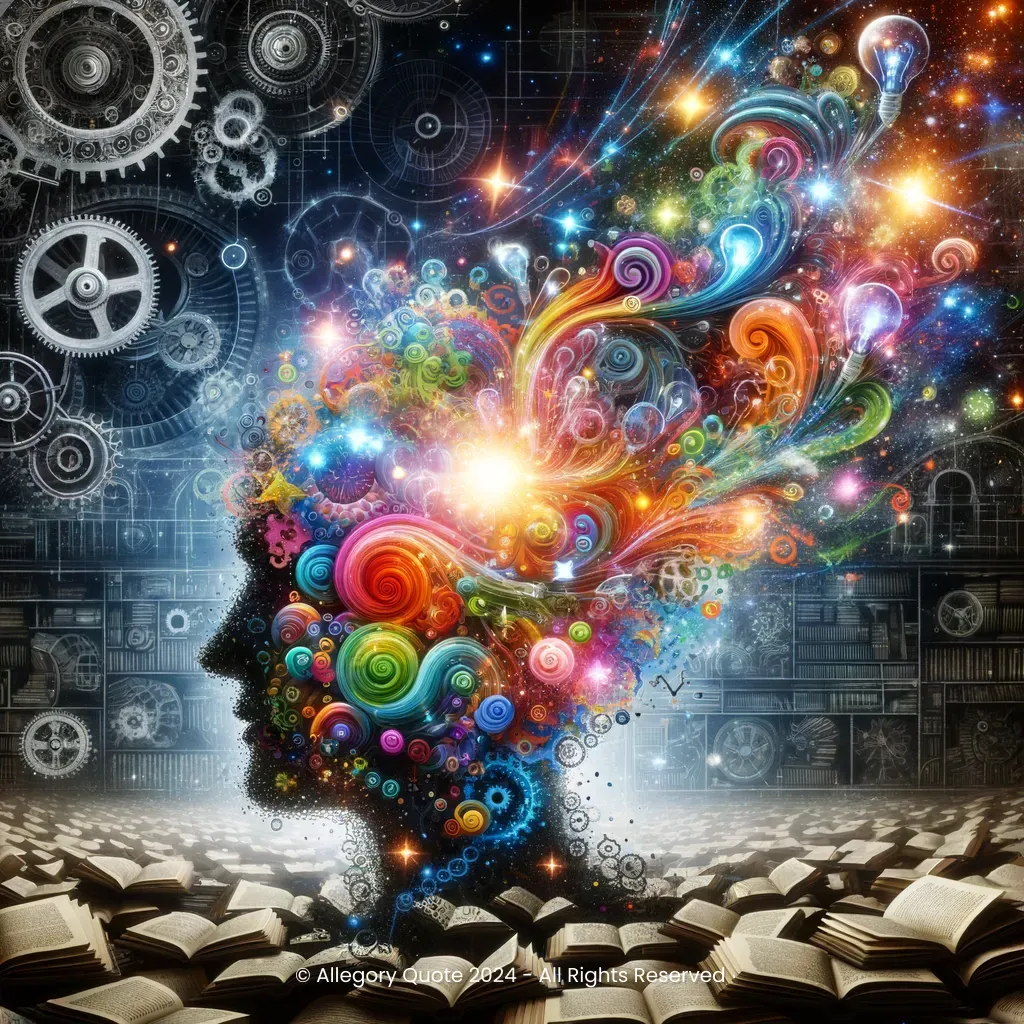
- Meaning
- This phrase suggests that true intelligence encompasses not just the acquisition of knowledge but the ability to envision and imagine possibilities beyond the known. Philosophically, it aligns with concepts in humanism that emphasize creativity as a core aspect of human potential. Psychologically, it encourages that imaginative thinking is essential for problem-solving and innovation, highlighting a deeper understanding of the human condition that transcends rote learning.
- Allegory
- The image elements symbolize the core aspect of the phrase, illustrating the contrast and relationship between imagination (colorful ideas and creativity) and knowledge (books and gears). The swirling colors represent the limitless possibilities that imagination offers, while the grounded symbols of books signify the roots of knowledge, together reflecting a holistic view of intelligence.
- Applicability
- In personal life, one can apply this lesson by fostering creativity through hobbies, arts, or new challenges instead of just focusing on academic achievements. Embracing imagination can lead to unique solutions in daily problems and enhance personal growth.
- Impact
- This phrase has significantly impacted educational philosophies, emphasizing creative thinking in learning environments, inspiring movements that advocate for arts in education, and supporting non-traditional methods of knowledge acquisition. It's frequently quoted in discussions around innovation and creativity.
- Historical Context
- While a specific date for this phrase is difficult to pinpoint, it is likely rooted in the early to mid-20th century when Einstein was active, particularly in the 1920s and 1930s, as his contributions to theoretical physics and public discourse on intelligence and creativity became prominent.
- Criticisms
- Some critiques argue that this perspective diminishes the value of knowledge and factual understanding, suggesting that imagination without a foundation in knowledge can lead to unrealistic or impractical outcomes. Critics might argue for a balance between knowledge and creativity.
- Variations
- Cultural variations include similar sentiments found in Eastern philosophies where intuition and creativity are considered paramount, such as in many indigenous cultures which emphasize the wisdom of imagination in harmony with nature.
-

You never fail until you stop trying.
-

A person who never made a mistake never tried anything new.
-
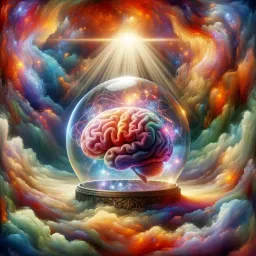
The difference between genius and stupidity is that genius has its limits.
-
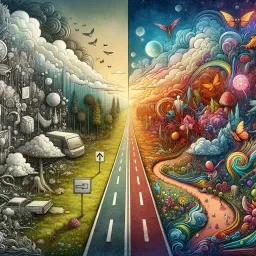
Logic will get you from A to B. Imagination will take you everywhere.
-
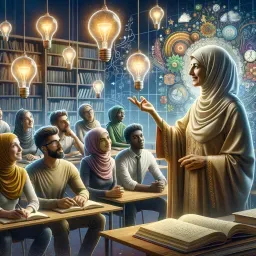
If you can't explain it simply, you don't understand it well enough.
-

Anyone who has never made a mistake has never tried anything new.
-
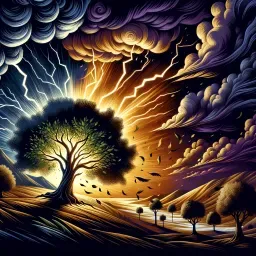
Great spirits have always encountered violent opposition from mediocre minds.
-

Try not to become a man of success, but rather try to become a man of value.
-
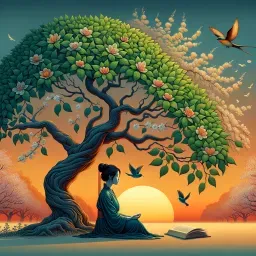
I live in that solitude which is painful in youth, but delicious in the years of maturity.
-

We cannot solve our problems with the same thinking we used when we created them.
-
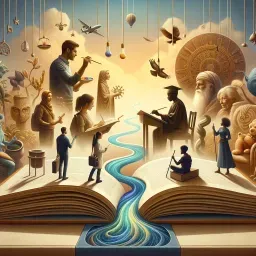
Education is what remains after one has forgotten what one has learned in school.
-

Hey, if nothing lasts forever, then everything is just the stuff of now.
No Comments